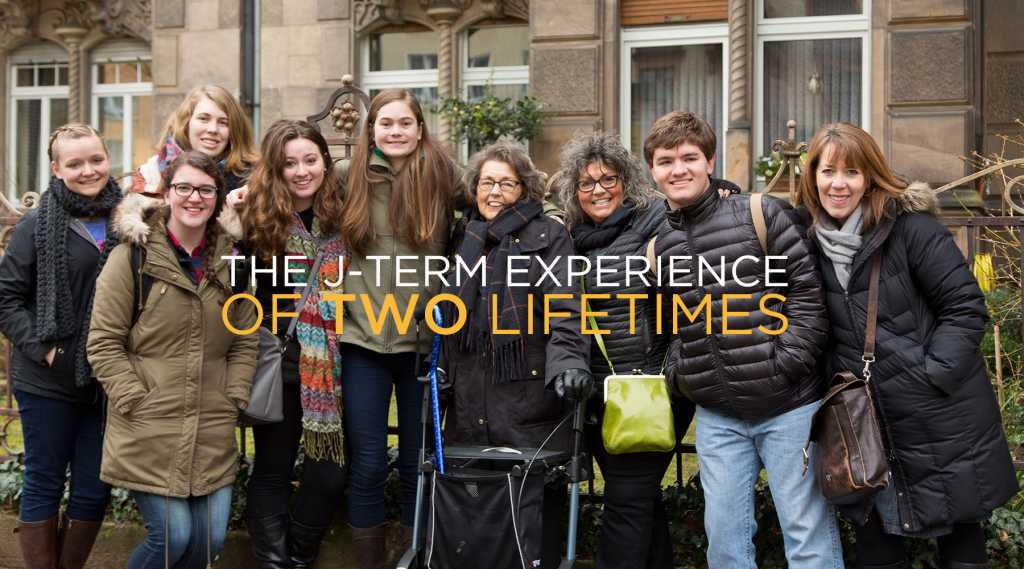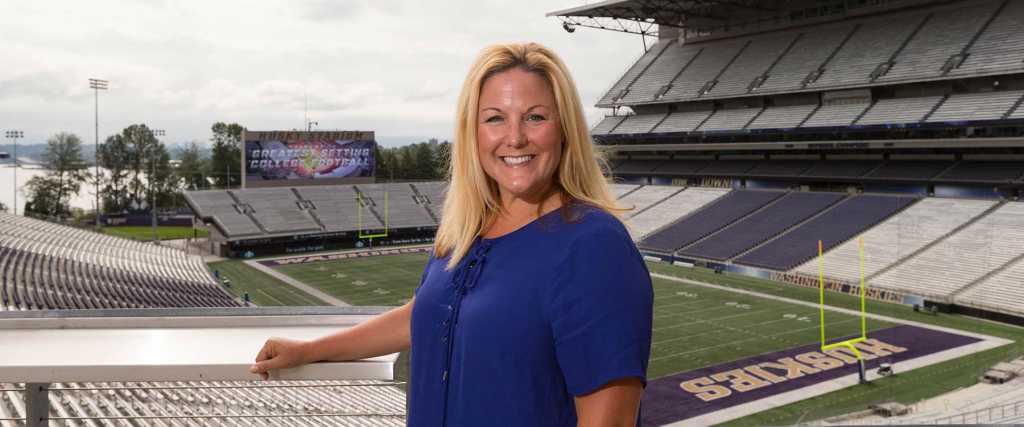Page 205 • (2,145 results in 0.055 seconds)
-

, she had to branch out to surrounding Tacoma, Parkland and Spanaway schools to meet other people of color. After joining the heritage speakers cohort, Pinedo Chipana gained so much more, particularly a heightened ability to communicate with her relatives from Peru, where she was born. “My parents know all the history,” she said. “I was able to relate more to what they were talking about. When I learned about the history, I could finally understand what they were talking about.” Rojas Apodaca, a
-

,” outside a classroom lab setting. “We don’t know the answers in advance,” she said. “Our job is to figure out how to ask the questions.” For Hoang, doing science can mean embracing failure, because it’s part of the process. “Conducting research allowed me to appreciate failed experiments,” she said. “This actually helps me become more problem-solving savvy.” For Kiyomi Kishaba ’21, studying Jewish immigrants in South America resonates with her own family history. Her father’s side is ethnically
-
her time on The Voice. Guest Contributors Samuel Torvend, Ph.D. Samuel Torvend, Ph.D., is professor of the history of Christianity and currently serves as the university chair in Lutheran studies. As a historian of Christianity, his research focuses on the history of religious responses to poverty and food insecurity. He also teaches courses on religious art and architecture and their role in reforming movements. Among his published works are Luther and the Hungry Poor: Gathered Fragments . Kevin
-

escaped to the United States during the Holocaust and settled in San Francisco. “I thought, ‘I need to do a Kurt Mayer segment,’” Christensen said. “And I thought, ‘Why hadn’t I thought of that before, and why hadn’t I done that while he was alive?’” Christensen had known Mayer personally—not well, she said, but very meaningfully, through her opportunity to work with him on the German translation of his memoir, My Personal Brush with History . Christensen ran into Mayer’s son, Joe, at a Powell-Heller
-

escaped to the United States during the Holocaust and settled in San Francisco. “I thought, ‘I need to do a Kurt Mayer segment,’” Christensen said. “And I thought, ‘Why hadn’t I thought of that before, and why hadn’t I done that while he was alive?’” Christensen had known Mayer personally—not well, she said, but very meaningfully, through her opportunity to work with him on the German translation of his memoir, My Personal Brush with History . Christensen ran into Mayer’s son, Joe, at a Powell-Heller
-
/* fix for jQuery UI library issues when using the date picker popup */ jQuery.browser = {}; (functi
-

City MA, Luther Seminary, St. Paul Minnesota MA, Education, PLU, Tacoma, WA Loading... It’s FREE to apply to PLU When you're ready, we're here. Apply now and fulfill your potential! Get Started Related Programs: Anthropology Art & Design Global Studies Hispanic & Latino Studies History Music Peace Corps Prep Religion Sociology Learning French and studying in Aix-en-Provence opened the door for me to potentially live and work in a Francophone country in the future. Like any other language-focused
-
Anthropology Jordan Levy – Fall 2020 Cohort Ami V. Shah – Summer 2020 Cohort Katherine Wiley – Fall 2020 Cohort Department of Economics Lynn Hunnicutt – Summer 2020 Cohort Nick Paterno – Summer 2020 Cohort Department of English Nathalie op de Beeck – Summer 2020 Cohort Rona Kaufman – Summer 2020 Cohort Adela Ramos – Fall 2021 Cohort Department of History Michael Halvorson – Spring 2022 Cohort Department of Languages and Literatures Leslie Anderson – Fall 2021 Cohort Kirsten Christensen – Spring 2021 Cohort
-
literature, music and political science, history and business, or geoscience and philosophy. To see a list of past Peace Scholars and their majors, please go to www.peacescholars.wordpress.com. How many Peace Scholars are selected?There are two Peace Scholars selected each year. What are the costs of the program?Airfare to and from Norway is paid. In addition, lodging, food and tuition are paid by the program while students are in Norway and costs would be covered if an event occurs in the U.S. Any
-

service work they perform. “I never really looked back,” she recalled. “I wanted to do exactly what I’m doing today.” Cohen said the support from the legendary coach and others means a lot, especially as a woman in her male-dominated field. She’s only the second female AD in UW history and the only current female AD in the Pac-12 Conference. Cohen said PLU was a perfect fit for her. She served as a graduate assistant, working primarily with the baseball team. She also helped coach the volleyball team
Do you have any feedback for us? If so, feel free to use our Feedback Form.


